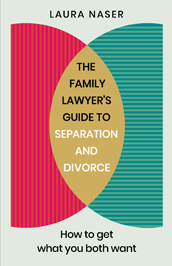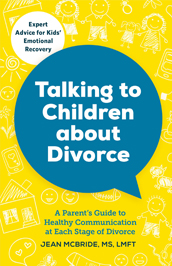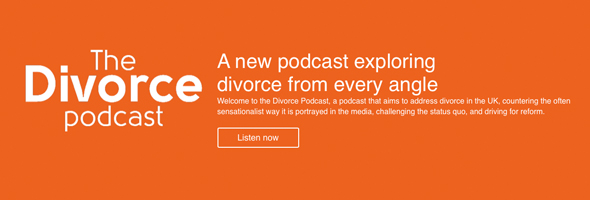Things To Consider Before filing For Divorce: A Comprehensive Guide

- This blog contains affiliate links, which we may receive a commission for purchases. The decision is yours, whether or not you decide to buy.
When you realise that your marriage has come to an end, it can be a painful and difficult time.
Once reality has set in, you may want to get the process of divorcing your partner over with as quickly as possible, but this does not mean that you should rush in to filing for divorce straight away.
There are a lot of key factors that you will need to consider before you reach this point. Here, we take a look at some of the most important ones, to make sure that when you take the leap, everything is in order.
1. Timescale
The unfortunate reality of divorce is that it is rarely done quickly. At best, it is likely to take several months, and these will be months where your future seems unclear, living arrangements can be messy and there is likely to be a lot of stress and anxiety. Being prepared for this fact can make it easier to stand and helps to put you in the right mindset.
Often, couples will choose to separate before they think about filing for divorce. This will usually result in one party moving out and a temporary plan being put in place for how you will live and split childcare. Getting used to this can help make the rest of the divorce proceedings easier, as the upheaval is taken in stages.
2. Divorce outcomes
It is easy to fall into the trap of thinking that divorce is one piece of paper and one arrangement, but it is more likely to be split into three separate steps. Ending the marriage is one part of this, but your financial affairs and parenting arrangements will all be dealt with separately.
Dividing up assets, property and other finances can take a huge amount of time and lead to some bitter fights, but a divorce cannot be completed without this being settled. If you have a pre-nuptial agreement, it can make this more straight-forward, but that is not always the case if one party decides to challenge it.
You will no doubt have come to some short-term arrangements regarding access to your children, but you may need to go through the family courts to reach a more formal agreement that you are both required to stick to.
3. Mediation
Mediation is a route which is highly recommended when it comes to divorce. It can be a more constructive way to determine how things will be divided or how the children will be cared for before reaching the formality of solicitors and court.
This can be an effective way to speed up the divorce process if you are able to come to some amicable arrangements.
4. The blame game
If it is you who is filing for divorce, you need to remember that you will need to cite a reason for this. Whilst there are moves to bring in a ‘no fault’ divorce in England and Wales, this is not something which currently exists.
It is also not an option to simply say that you have fallen out of love or blame bad luck. One of you will have to divorce the other one, and you will be made to choose from one of five reasons: unreasonable behaviour, adultery, desertion, living apart for more than two years or living apart for more than five years.
It does not always feel nice listing the reasons for your divorce, but it is something which needs to be done. It is also worth remembering that there are no punishments for being at fault in the divorce; you will not receive a greater share of the house because your partner cheated on you or behaved badly.
5. Dividing things up
Whilst there are precedents, there are no set rules to determine who gets what in a divorce. Each case will be taken on its own merits, looking at your individual and joint financial circumstances.
You will not automatically be entitled to take more out of the marriage just because you put more in or because you are the mother of a child. Your mediator and solicitor will be able to steer you in the direction of a fair settlement for everyone.
Organising your finances in advance can be helpful, and it will be clearer where your stand financially. Gather together whatever paperwork you can find to show who owns the house, cars, pensions, inheritance and other valuable belongings
It is also useful to outline and debts, what they are for and who is responsible for them. If you have shared credit with your partner during your marriage, it might be useful to obtain a credit card in your name before you file for divorce.
That does not mean you need to spend much on it, but it starts to build up a healthy credit rating that will make it easier for you to buy a house or car when you split up.
6. Not everything goes to court
Unlike the many television dramatisations, many couples do not go anywhere near a court during their divorce. In the most part, your arrangements will be dealt with by solicitors and mediators as going to court is a stressful, and often unnecessary measure. Having your divorce looked at in court is usually a last resort if no other agreement can be reached, so do not file for divorce expecting to take the witness stand.
7. Choose a professional
As with all things in life, there are good solicitors and those who leave a little to be desired. Try to avoid choosing the first name that you come across, and instead look at testimonials or take recommendations from friends.
You want someone who will deal with your case sensitively, punctually and effectively to make sure that you get the best outcomes for everyone concerned. Simply settling for someone because they are cheap is not always in your best interests and can make the process longer and more arduous than it needs to be.
Divorce will never be easy but being prepared for what lies ahead can help to make it smoother sailing. If you understand what will be asked of you, then you can be in a position to get everything together and approach the whole process with a calmer and clearer head.
Written by Kerry Smith Head of Family Law at K J Smith Solicitors. K J Smith Solicitors are experienced family solicitors in the Thames Valley area specialising in family mediation, estate planning, divorce, and separation.
PHOTO: COTTONBRO
You may also like
Books
Buy now from Amazon
- The Family Lawyer’s Guide to Separation and Divorce
- Talking to Children About Divorce
- Parenting Apart
Podcast
Kate Daly is co-founder of amicable and host of the The Divorce Podcast. Kate created The Divorce Podcast to discuss and demystify divorce, separation and co-parenting in the UK. In each episode, Kate is joined by experts in their field to explore divorce and separation from every angle.
Articles
- Getting Back With Your Ex: The Pros And Cons
- How To Be Great Parents Through Separation And Beyond
- Splitting Assets Fairly In Divorce
Legal professionals
Related Posts
-

Divorce And Friendships: Navigating Shared Social Circles
-

Managing Divorce Post-Christmas: Unveiling The January Surge In Separations
-

Thriving Through The Holidays: A Guide To Resilience And Self-Discovery After Christmas, Separation, And Divorce
-

5 Rights Of A Child After Divorce
-

Six Ways A Divorce Coach Can Transform Your Divorce Journey



.jpg)


